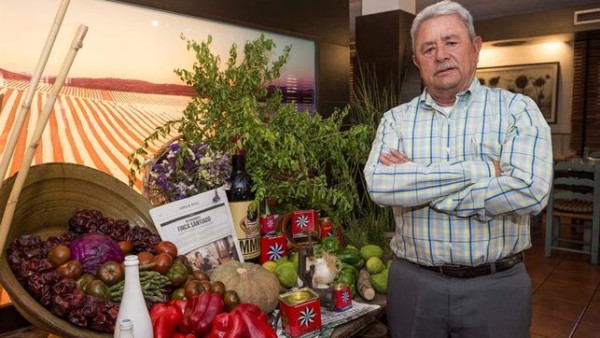A delegation of farmers and businessmen from Guanajuato are studying in Spain the way to transfer to their businesses a model that they consider exemplary in terms of coordination between irrigation systems, farmers and exporters with research centers.
For this reason, the delegation will visit throughout this week various companies in Murcia (southeast of Spain) related to irrigation technologies, such as Azud or Irrigation Levante, and will meet important production companies, such as Jimbofresh, Grupo Duran or Primaflor.
The Guanajuato delegation paid a visit to the Center for Edaphology and Applied Biology of the Segura (CEBAS-CSIC), where they were able to witness the technology transfer that takes place with experimental farms, in order to acquire the necessary knowledge that allow developing strategies in semi-arid zones.
As a result, there is high quality agriculture featuring healthy and safe food plants.
The delegation also visited the Segura Hydrographic Confederation (CHS) and the Ministry of Agriculture and Water, where they learned about water use and purification practices in the region, with almost a hundred sewage treatment plants and the reuse of 97% of the water .
Luis Rojas, general director of the Coordination of Promotion of Foreign Trade (COFOCE), told Spanish hews agecy EFE that the objective is to get to know the techniques implemented in that Spanish autonomous community to optimize such an important resource as water, and how they have managed to make that transformation and be able to become a competitive project well known throughout Europe.
As he said, the two visits were very enriching “because they have opened the doors of their centers to let us know more about their strategies and it has been very valuable”.
“We would like to take a comprehensive view of the transformation that the Spanish region of Levante has had in the efficient treatment of water, and above all the conjunction of efforts that has caused this area to become one of the most prosperous at the agricultural level,” he added.
Agustín Robles, president of the irrigation module 011 Río Lerma of the State of Guanajuato, affirmed that in his area he “is losing time in producing grains because they are not profitable”, hence the interest in seeing what is being done with the scarce water they have in Murcia, because there are three times more water and the potential, therefore, is great to explore new crops and markets.
Robles, representative of an area that covers 124 hectares and 24,700 producers, underlined that in Guanajuato, they are “very disorganized” unlike Murcia, where there are cooperatives that open markets efficiently.
“We will look for ways to start the production of products that are suitable for our area,” he added, explaining that they have been using drip irrigation for ten years, so they intend to improve this system in this visit.
“We have seen that there is a lot of water produced here,” said Robles, who stressed that the producers are very organized.
Roberto Castañeda, undersecretary of agrifood development of the State of Guanajuato, valued Spanish technology above the Israeli or Dutch, both leaders in the hydrological sector, because “for Mexico is more relevant Murcia because the idiosyncrasy of its farmers is more similar” to that of our country, Castañeda said.
“The great challenge we have is to be able to articulate all the technologies and to see an integral benefit, with business models designed with agricultural cooperatives, from primary activity to the supermarket, with the entire value chain, including all the areas of support, such as research centers, “he continued.
“We need to increase the competitiveness of the companies in Guanajuato, and we need more solid partnerships such as those that have been established in Murcia, in order to be able to produce with higher quality, productivity, profitability and market development,” Roberto Castañeda concluded.
Source: eldiario.es


